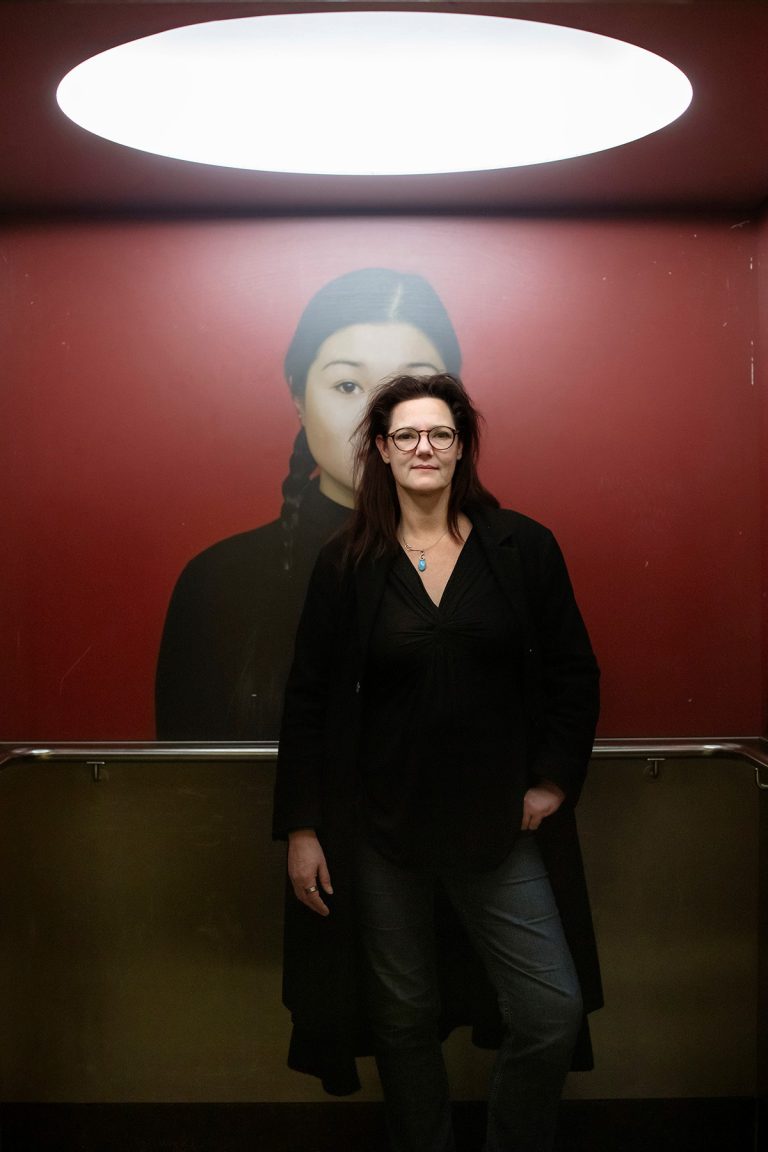During each meeting of the participation council, two interpreters are present. Why is that? “The VU wants to make sure that international students and employees have the opportunity to take part in the co-determination process. It is important that all members of the council understand properly what is being said, regardless of their command of the Dutch or English language. Even though many people are quite able to express themselves in English, especially at a university – it is not always as easy to have a nuanced discussion in a foreign language. Inviting interpreters provides the opportunity to focus on content rather than on translation.”
You interpret simultaneously. What does that entail? “The members of the participation council who need translation listen to us through headphones. We’re in the same room, because it’s important that we have a good view. We use ‘chuchutage’, whispering interpretation, to avoid disturbing. We listen to a speaker, process it in our heads, and start translating as soon as we have a concept. Meanwhile, we continue to listen to the source text and have to stay alert to what we’re saying. It requires so much concentration that we have to switch after about thirty to forty minutes. Otherwise, you might start saying things that are incorrect, or formulate messy sentences.”
During your work, you translate both Dutch-English and English-Dutch. In which language do you think? “I don’t think at all when I’m at work. As soon as I start thinking about something, I start lagging. I am extremely focused: listen, understand, convert, listen, understand, convert. And all of this simultaneously – so while speaking. It’s shooting from the hip: go go go. As an interpreter, I work partly on adrenaline; I have to be in the moment. That is perfect for me. When I translate on paper, I easily get distracted and can’t make choices. There’s no room for distraction during interpreting.”
Couldn’t this be done by Google Translate? “We are so much more than a living dictionary: the crucial part of interpreting is that we actually understand what is being said. It’s not about the words but about the concepts, connotations and contexts. Preparation is half of the interpreting work. I read the agenda of a meeting and other important documents. Other than that, we also pick up on non-verbal communication. We translate the intention with which someone speaks: are they enthusiastic, agitated, hesitating. Or, a personal favourite: speaking with a mischievous smile. You don’t always hear that in someone’s words, so I incorporate the intention into my translation.”
You also interpret for notaries, at events, at conferences. Is VU Amsterdam a nice workplace for an interpreter? “The participation council in higher education is dynamic and the members are very committed. It’s interesting to see how employees, scientists, students and teachers come together and stand up for their university. They are driven to ensure that things go well and to improve the university. I get a behind-the-scenes look and understand more and more how the VU operates because I’m here almost every week. When a new initiative is presented, I’m genuinely curious whether it will be implemented.”
Are you also constantly translating in your head outside of work? “Fortunately not. That would drive you crazy, wouldn’t it? I am alert to words I don’t know, though, and regularly think about how I would translate certain sentences. At the moment, for example, I’m very interested in birds and trees. What is a ligusterhaag in English? [editor’s note: privet hedge]. I’m also excited about beautiful English words in movies and tv-shows, especially verbs. I write them down in a little book, hoping to use them someday.”
